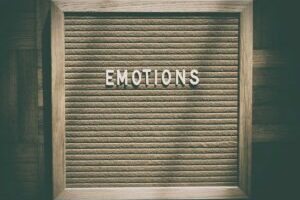From KevinMD.com: “The medical establishment has made wonderful strides in destigmatizing ‘psychiatric disorders.’ However, we have helped to create a devastating stigmatization of emotional distress. Somehow, as it has become acceptable to suffer from a ‘psychiatric illness,’ it has become increasingly unacceptable to suffer from emotional distress and the current medical practice has nurtured this change.
. . . When someone is in distress, no empathic conversation makes room for and supports an emotional experience. There is no listening ear that helps a patient identify their feelings and make sense of them. There is a medicalization of the experience as abnormal and a prescription given to essentially silence whatever emotional state we are confronted with.
When a patient comes in and complains of anxiety, this is the beginning of an important conversation. [But] in our current climate, it’s the beginning and the end of the conversation. You are now identified as ill. We miss the young man who drinks ten beers at night, the woman who’s being abused, the teen that’s being bullied. We encourage that patient to view negative emotions as something to eliminate, not an essential and rich source of information. Now it’s not the alcohol that’s the problem, or the abuser or the bully, it’s the patient. I had a patient come in demanding medication to treat her ‘anxiety.’ When pressed to clarify the context of her anxiety, she told me that she feels anxious when she leaves her young daughter alone with her questionable new boyfriend. This young woman has come to believe, with the help of medicine, among other factors, that her emotional state was pathological and not the wondrous and instinctual signal to protect her child.
We are nurturing an environment of emotional phobia where people can no longer identify and frankly fear their own emotions and the emotions of others . . . The lack of ability to identify our own humanness and, in turn, recognize it and empathize with it in others is further reaching than we might imagine.”

***
Back to Around the Web











